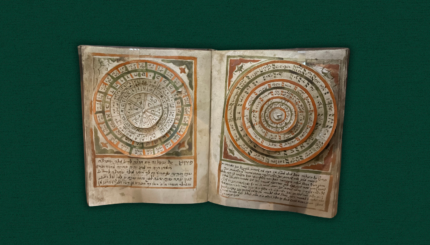This special holiday post comes from guest blogger Rabbi Matt Rosenberg, Executive Director of Hillel at Texas A&M University. Thank you, Rabbi Matt!
“Rabbi Matt, they’ve scheduled the Alabama game for Yom Kippur.”
Hearing these words while still living in Los Angeles did not mean much to me; more to the point, I didn’t understand just how significant they were. I was finishing rabbinical school and preparing to move to College Station, Texas to be the executive director of Hillel at Texas A&M University. I thought, “Why are they telling me this?”
How naive I was.
Now, two months into my job at Texas A&M, I have a far richer appreciation for the role of football in Texas. As a new rabbi just out of rabbinical school, where for the last six years I was immersed in the traditions of our ancestors, there was nearly nothing holier or more important than the Day of Atonement. Yet, here we were, with this dilemma: Alabama vs. Texas A&M, the biggest football game of the year, was going to take place on that very Sabbath of Sabbaths, Yom Kippur. Saturday, September 14, with a kickoff time of 2:30 p.m.
How would I reconcile the need to maintain a holy day of atonement, with the competing call of a holy day of the Aggies battling the Crimson Tide?
I was truly grateful for the 2:30 p.m. kickoff. It made my life so much easier. I realized I wouldn’t have to abbreviate services or start Yom Kippur morning services at a strange time. We could easily complete the additional musaf service and perhaps mincha well before kickoff, before alumni or students needed to rush off from our brand-new Hillel building across the street to Kyle Field, the football stadium where the Aggies would hopefully defeat their opponents from Alabama.
With such a kickoff time, I determined that we’d be able to resume our closing services at 6 p.m., which should coincide with the end of the big game. After the game and after my congregation returned from Kyle Field to Hillel, we’d be able to hopefully rejoice in not only the exhilarating feeling one experiences after a long day of fasting for Yom Kippur but also in the exhilaration of an Aggie victory. Alternatively, if the Aggies were to lose, the chest-beating of the confessional “ashamnu” prayer would take on new meaning for my new congregation.
One of the traditions of Kyle Field is that students remain standing throughout the game. For my students attending the Alabama game on Yom Kippur, they’ve elected to try to pull tickets in a special section for those who need to remain seated. I do hope, for my students’ sake, that the weather is mild and not the 100-degree-plus weather we’ve been having in these days leading up to the High Holy Days.
For me, this juxtaposition of atonement and football will be an enlightening experience, one which I have never experienced before but I was trained by my teachers in California to be flexible and creative within the bounds of our tradition. To meet our congregants where they are, and emphasize the importance of Jewish life not “in place of” other things we value, but right alongside them – and certainly not of lesser importance. With the Alabama game, I appreciate the opportunity to exercise that flexibility in bringing Torah to the world.
Shanah Tovah!
Torah
Pronunced: TORE-uh, Origin: Hebrew, the Five Books of Moses.
Yom Kippur
Pronounced: yohm KIPP-er, also yohm kee-PORE, Origin: Hebrew, The Day of Atonement, the holiest day on the Jewish calendar and, with Rosh Hashanah, one of the High Holidays.



